The pursuit of larger muscles often centers around weightlifting, a cornerstone of effective resistance training. Understanding the ideal frequency for lifting weights is crucial for fostering muscle growth. When my clients ask how often they should lift weights to build muscle, I explain the advantages of weightlifting for muscle development, offer recommendations for lifting frequency to stimulate muscle growth, and provide a weightlifting routine with step-by-step exercise instructions.
Consistency and progression are vital when pursuing muscle growth through weightlifting. The provided sample routine offers a starting point, but individuals should tailor their programs based on personal preferences and goals. Gradually increase the intensity while ensuring adequate recovery to effectively stimulate muscle growth. By adhering to a well-balanced weightlifting routine, you can pave the way to achieving those sought-after bigger muscles.
How is lifting weights beneficial for muscle growth?

Lifting weights helps to grow your muscles by contributing to the following responses:
1. Muscle Fiber Activation
Lifting weights engages different muscle fibers, especially fast-twitch fibers, which are known for their higher growth potential. The stress applied during resistance training prompts the body to repair and fortify muscle tissues, leading to hypertrophy.
2. Hormonal Response
Training with weights triggers the release of key hormones like testosterone and growth hormone, which are essential for muscle development. Lifting optimizes the body’s ability to build and repair muscle tissues through these hormonal responses.
3. Increased Metabolic Rate
Lastly, weightlifting builds muscle to elevate your resting metabolic rate, facilitating fat loss and contributing to a more defined physique.
How often should you lift weights to build muscle?

The frequency of weightlifting for muscle growth varies based on individual factors. As a general guideline, aim for at least three to four weightlifting sessions per week, allowing ample recovery time between sessions while maintaining a consistent stimulus for muscle development.
It’s also important to practice progressive overload to ensure your muscles are being challenged enough to grow. To practice progressive overload, gradually increase the amount of weight you lift every couple of weeks.
Here’s a sample weightlifting workout to boost muscle growth:
Day 1: Upper Body
1. Bench Press
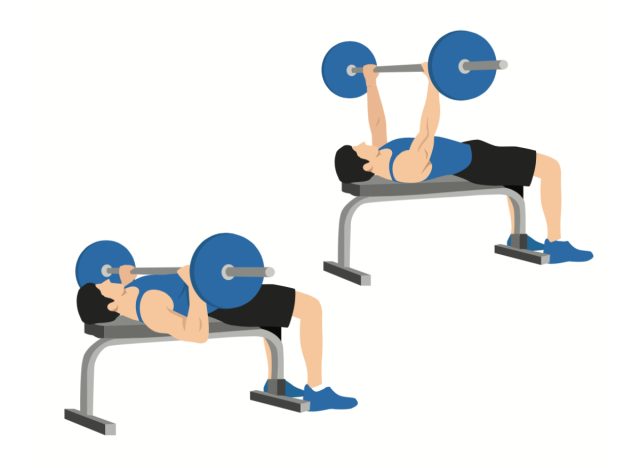
Sit on the bench with your feet flat on the ground. Grip the barbell with your hands slightly wider than shoulder-width apart. Lower the bar to your chest, then push it back up. Complete four sets of eight to 10 reps.
2. Bent-Over Rows
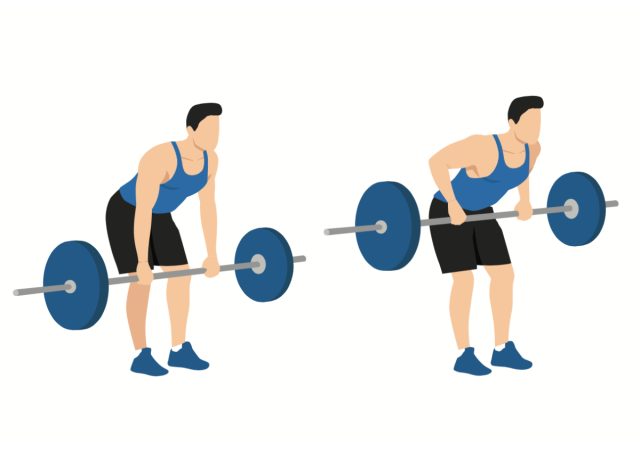
Stand with your feet shoulder-width apart, holding a barbell with an overhand grip. Hinge at the hips, keeping a flat back, and pull the barbell to your lower ribcage. Complete three sets of 10 to 12 reps
3. Overhead Shoulder Press
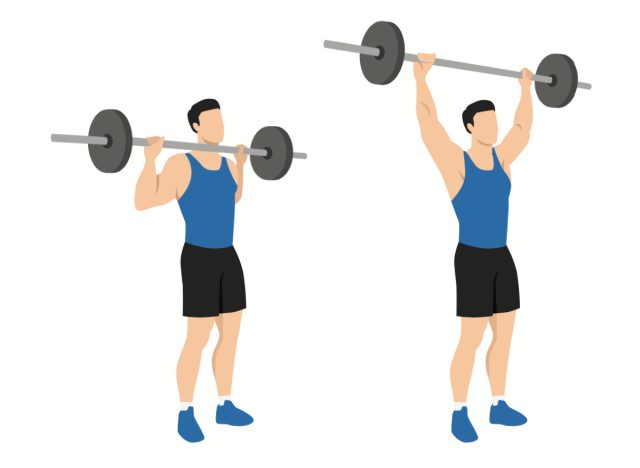
Stand with your feet hip-width apart, and lift the barbell from shoulder height to overhead. Lower it back to shoulder height. Perform three sets of 10 to 12 reps.
Day 2: Rest or Light Cardio
Carve out time to rest so your muscles can recover from your first day of lifting. You can stretch, go for a long walk, practice a gentle yoga flow, or incorporate some light cardio into your day. Be sure to drink lots of water and eat a protein-rich meal.
Day 3: Lower Body
1. Squats
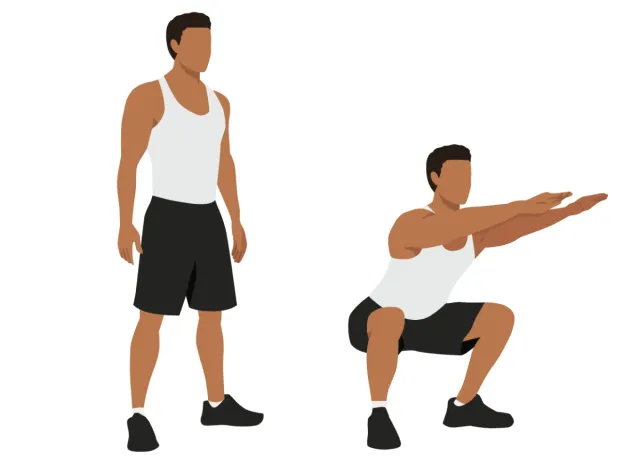
Stand with your feet shoulder-width apart, and lower your body by bending your knees and hips. Keep your back straight and your chest up, then return to the starting position. Perform four sets of eight to 10 reps.
2. Deadlifts
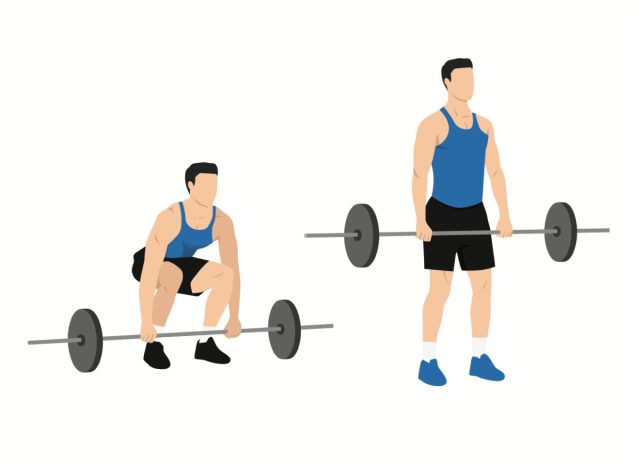
Stand with your feet hip-width apart, and bend at the hips and knees to lower the barbell. Keep the bar close to your body, and stand up straight. Perform three sets of 10 to 12 reps.
3. Leg Press
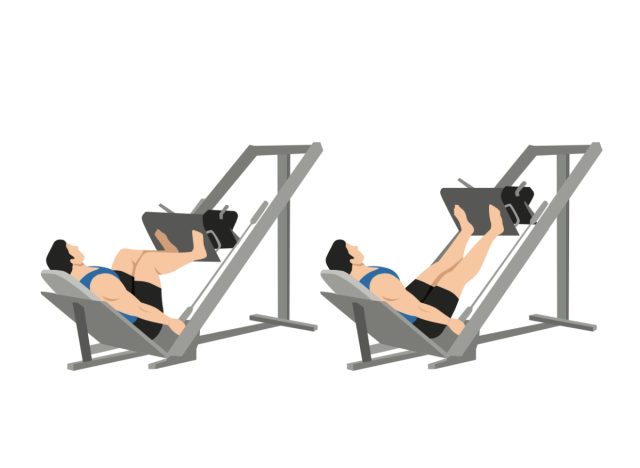
Sit in the leg press machine, and place your feet hip-width apart on the platform. Push the platform away from you, extending your knees. Complete three sets of 10 to 12 reps.
Day 4: Rest or Light Cardio
Take time to rest so your muscles have plenty of time to recover. Once again, you can stretch, head outdoors for a brisk walk, perform a gentle yoga flow, or do some light cardio. Don’t forget to drink lots of water, and consume a protein-packed meal.
Day 5: Full Body
1. Pull-ups or Lat Pulldowns
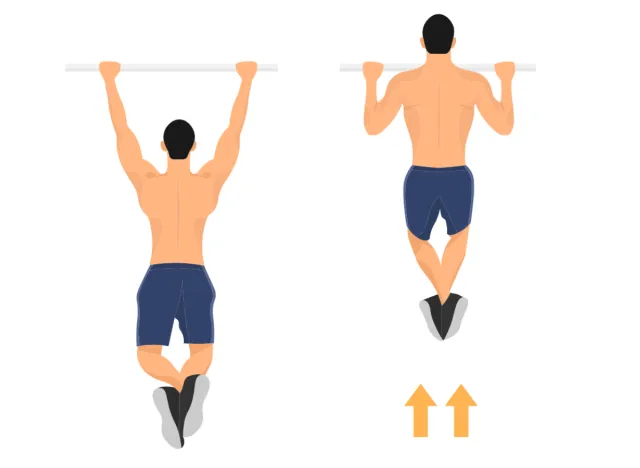
If doing pull-ups, grip the bar with your hands slightly wider than shoulder-width apart, and pull your body up. For lat pulldowns, use a cable machine, and pull the bar down to chest level. Complete four sets of eight to 10 reps.
2. Pushups
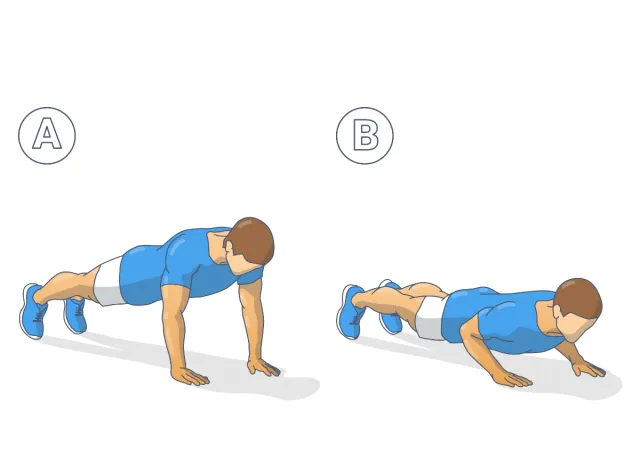
Start in a plank position, lower your body by bending your elbows, then push back up. Perform three sets of 12 to 15 reps.
3. Planks
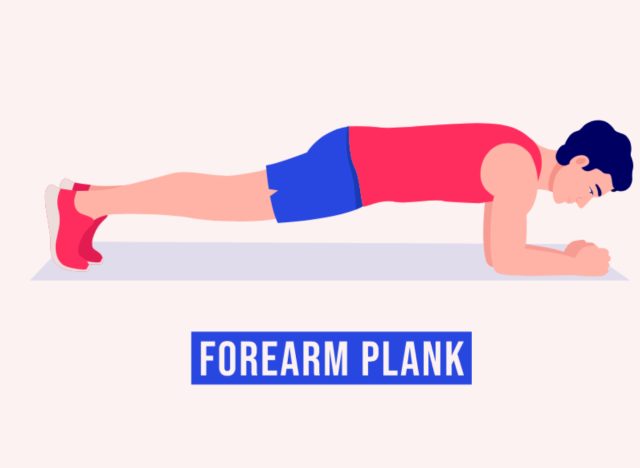
Get into a forearm plank position, keeping your body in a straight line. Hold for 60 seconds. Complete three sets.
Day 6 and 7: Rest or Light Cardio
To round out this weekly routine, on days six and seven, carve out some rest and recovery time. Stretch, take a long walk, or do some yoga. Drink lots of water, and eat a protein-packed meal.










